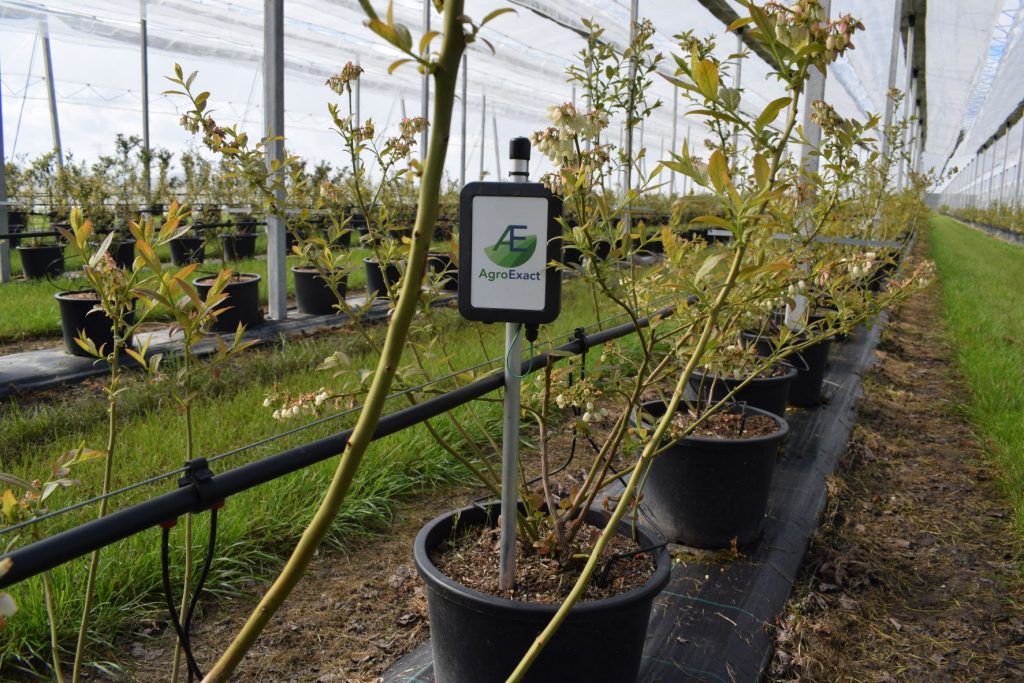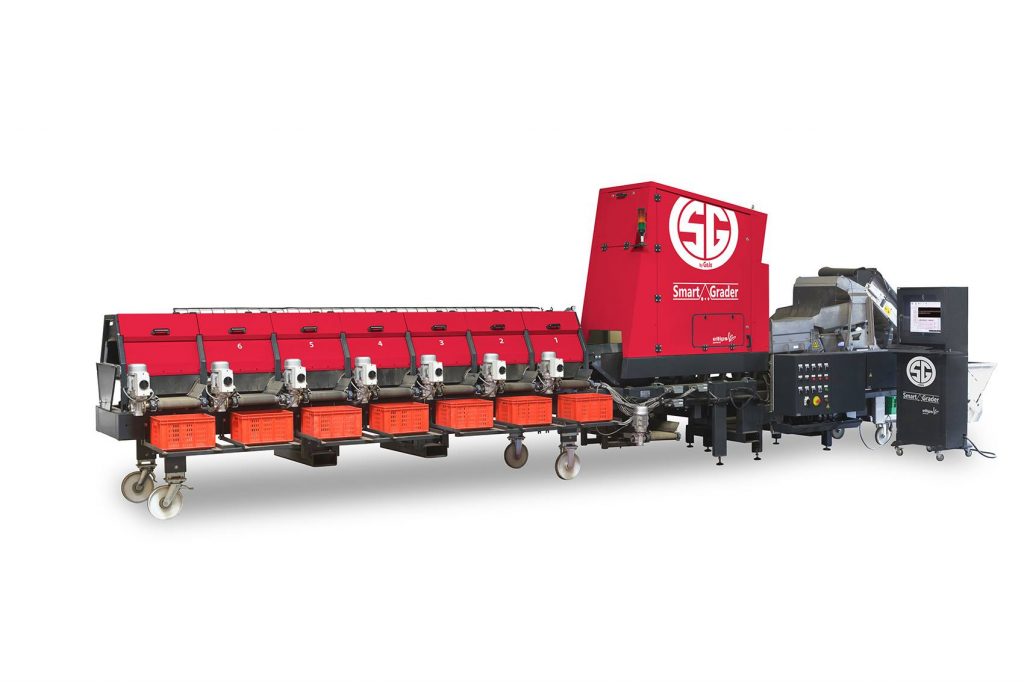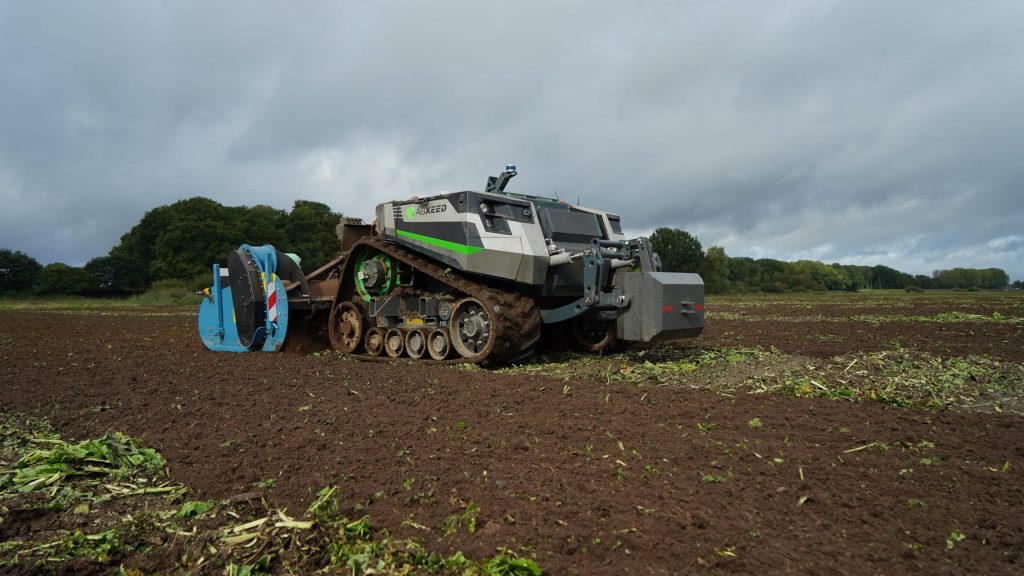Smart Farming or Big Data, a concept that is popping up more and more in the agricultural sector. A concept that is very close for some, very far away for others. A concept that sometimes sounds very futuristic and still very far away, but is applied in many ways. This is also the case in the tree and rootstock nursery.
In this blog we take you into the world of smart farming and big data, focused on practical applications in the tree nursery world. We explain what it means, what you can gain with it and how we use it ourselves at our rootstock nursery in the Netherlands.
Nothing is changeable than the weather in the Netherlands, nothing is more important than the weather in the Netherlands. Rain, temperature and humidity are important to keep a plant healthy. Have we had too little rain? Then we have to give our plants something extra. Has it rained too much? Then we have to get rid of the water.
At Fairplant we use a soil moisture sensor from AgroExact in our blueberry demofield. This allows us to see exactly how much soil moisture is present in the pot. If there is too little, we can add water with the fertigation system.

We also use a weather station, also from AgroExact. This allows us to see what the temperature is, how much rain has fallen and what the humidity is. In addition, we can gauge the soil moisture. This gives us a complete overview of the weather conditions around our rootstocks. Very important, because we want the best for our plants.
Some software can calculate the disease pressure itself for certain diseases and bacteria by using an algorithm that connects temperature, humidity and season. Especially the pressure around the Phytophthora bacterium is easy to calculate. A high humidity and temperature is very decisive in this.
When the disease pressure is low, there is less need to fight. This allows us to save resources, time and money and we only give the plants what they really need.
Drones, they sound like mosquitoes but have better eyes than a hawk. At high altitudes, they can take pictures of every square inch in the field. This offers many opportunities for farmers. This makes it much easier to spot bad spots in the field from a great height. It may be that the water management is not optimal here, or that compaction is occurring. This is often difficult to see with your eyes, but it is with a drone.

In addition, it is possible to measure chlorophyll grains with a drone. This way you can see which places in the field need some extra attention. With this data you can create a task card that gives plants exactly what they need. Too much would unnecessarily increase the cost price, too little would put pressure on the quality of the product. Precision farming allows you to use the perfect dosage.
Our nursery is located at the bottom of the former Zuiderzee. During the reclamation, the area is optimally equipped for arable farming. Very straight fields. This lends itself perfectly to RTK-GPS with which you can work the field with an accuracy of 2 cm. But this system is much more interesting on plots that are less flat and straight, this way there is more profit to be made.
If you start very straight when planting, you will always benefit from it.
The tractors at our nursery are equipped with Trimble’s RTK-GPS and work with an accuracy of <2cm measured on the tractor. As a result, the machine sometimes swings out, a few centimeters. However, this can immediately cause problems during subsequent work, for example when cleaning up two-year rootstocks.
To tackle this problem, we use the Rotink GPS Side-Shift Buk. This corrects the swinging out and ensures that the plants are tightly planned from start to finish. We also use this tool during cleaning, so that we can apply the operation in exactly the same place.
A straight planting offers many advantages and ensures the optimal use of expensive and scarce agricultural land. This way you get the most out of your surface. This also makes applying multiple operations easier and doing exactly what you want. In addition, it produces beautiful views!

A subsidiary of Fairplant is GeJo Grading. This company is specialized in optical sorting machines. The machines they build read each rootstock or potato individually using a state-of-the-art camera. We use this to sort our rootstocks according to size, rooting and straightness. This allows us to sort and deliver a homogeneous quality of plants quickly and easily.
With the same technology we can keep a close eye on our quality and yield. We make multiple reports for each batch. With this we know for sure that the customer gets what it asks for and we can provide a report in advance that tells the customer what quality is on the way.
By collecting year-in-year-out data, we get a good picture of good years and bad years. By linking the data from other sensors to it – for example the weather station – we can draw conclusions and therefore make a better forecast during the growing season.

An emerging technology with a lot of potential is autonomous machines. These machines drive without a person and can work 24/7. Especially in times when good employees are hard to find, an autonomous machine offers a solution.
However, using a robot costs a lot of money and makes you lose sight of the quality of your plants.

We do not use autonomous vehicles at our nursery, although we could. We like to keep a close eye on our plants, our land and our fauna. By regularly checking the field with (or without) a machine, we keep control over the quality of our products.
